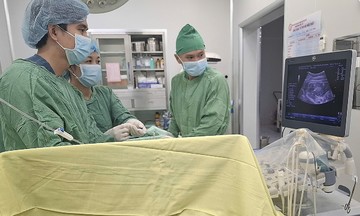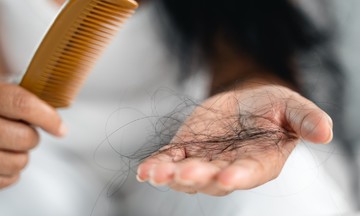On 12/9, a representative from the National Hospital for Tropical Diseases reported that the family of an 11-year-old girl was unaware of any dog bites or direct contact with a dog, so she had not received rabies vaccinations. The family's dog had died unexpectedly a few days before the girl became ill. After test results confirmed the girl was positive for the rabies virus, the family requested to take her home for care.
About 5 days prior to hospitalization, the girl experienced fatigue, headaches, and a reduced appetite, followed by a sore throat, difficulty swallowing, and a high fever of nearly 40°C. The family took her to a local hospital, but the diagnosis was unclear. The following day, her behavior changed; she became irritable, delirious, and exhibited hydrophobia, aerophobia, and declining consciousness.
Upon transfer to the National Hospital for Tropical Diseases, doctors diagnosed her with septic shock and encephalitis-meningitis. Dr. Nguyen Thi Huan from the Intensive Care Unit reported that the girl required mechanical ventilation, high doses of three vasopressor medications, and exhibited weak pupillary light reflex and increased phlegm production. Due to the hydrophobia, aerophobia, and the family's dog's recent unusual death, doctors suspected rabies and ordered testing. The results confirmed a positive diagnosis for the rabies virus.
 |
Rabies virus under a microscope. Photo: UTMB Edu |
Rabies virus under a microscope. Photo: UTMB Edu
Rabies is caused by the rabies virus (Rhabdovirus) and is transmitted from animals to humans through bodily fluids, usually saliva. The incubation period typically ranges from two to eight weeks, sometimes as short as 10 days or as long as one to two years, depending on the viral load and the severity of the wound. The disease causes acute infection of the central nervous system.
Currently, there is no treatment for rabies. Once symptoms appear, the disease is almost always fatal. The primary preventative measure is vaccination immediately after a dog bite.
Doctors recommend that if bitten or scratched by a dog, cat, or any other animal, immediately wash the wound under running water with soap for 15 minutes. Avoid scrubbing the wound, applying leaves, or using traditional remedies. Seek medical attention at the nearest healthcare facility for consultation and rabies vaccination, and rabies immunoglobulin (if necessary) as soon as possible. Do not wait to observe the animal if you are unable to monitor it reliably or if it displays unusual behavior.
Thuy Quynh












